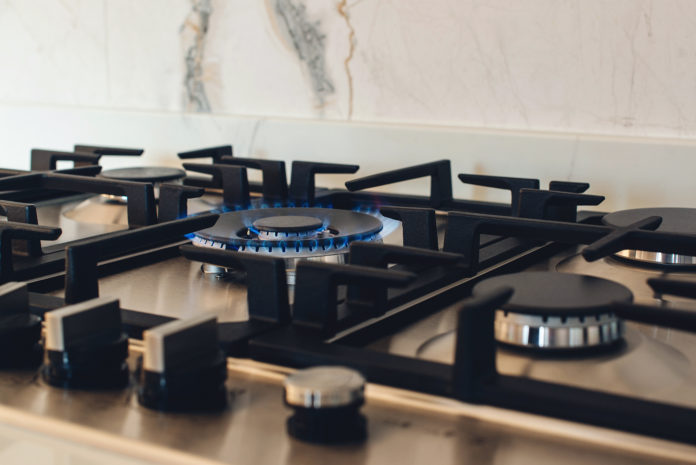Having a natural gas system in your home is as rewarding as it is unique. As a homeowner, it’s important that you stay on top of regular maintenance tasks for your natural gas system. This guide will provide you with all the necessary information and tips to ensure the safety and efficiency of your natural gas supply. With proper maintenance, you can rest assured that your home will be warm and comfortable throughout the year while also avoiding any potential hazards. Follow these guidelines and maintain peace of mind in knowing that your natural gas system is well-maintained. Let’s dive in!
Understanding Your Natural Gas System
Before we get into the specifics of maintenance, you ought to have a basic understanding of your natural gas system. Natural gas is a fossil fuel that is primarily used for heating and cooking in homes. It’s transported through underground pipelines and delivered directly to your home through a meter. From there, the gas enters your home through pipes and is distributed to appliances such as your furnace, water heater, stove, and dryer.
Natural gas offers numerous benefits as a source of energy for your home. It’s more affordable than electricity, making it a cost-effective option for many homeowners. It also burns cleaner than other fossil fuels, emitting less carbon dioxide and pollutants into the environment. Additionally, natural gas appliances tend to have longer lifespans compared to electric appliances, saving you money in the long run.
Regular Maintenance Tasks
To keep your natural gas system running smoothly and safely, it’s essential to perform regular maintenance tasks. Here are some tasks that should be done on a regular basis:
Check for Leaks
The first step in maintaining your natural gas system is to check for any potential leaks. You can do this by using a mixture of soap and water to create bubbles and applying it to the pipes. If you see bubbles forming, there may be a leak that needs to be addressed.
Clean or Replace Filters
Filters in your furnace and appliances should be cleaned or replaced every few months. This will ensure that they are running efficiently and not pushing dust and debris into your home’s air. It’s also a good idea to schedule regular maintenance checks with a professional to thoroughly clean and inspect your appliances.
Clear Vents and Exhausts
Make sure all vents and exhausts for your natural gas appliances are clear of any debris or obstructions. This will allow for proper airflow and prevent any potential hazards. It’s especially important to regularly check your furnace vent and exhaust during the winter months when it may become clogged with snow or ice.
Schedule Professional Inspections
You need to have a licensed professional inspect your natural gas system at least once a year, such as someone from San Diego Power, LLC. They will be able to identify and address any potential issues before they become major problems. It’s also a good idea to have them check for any carbon monoxide leaks while they’re on the job.
Important Safety Tips
In addition to regular maintenance, there are some safety tips that should always be followed when dealing with natural gas. These include:
Install Carbon Monoxide Detectors
Natural gas can produce carbon monoxide, which is a dangerous and odorless gas. Make sure you have carbon monoxide detectors installed throughout your home, especially near areas where natural gas is being used. These detectors will alert you if there are high levels of carbon monoxide present. Just note that these detectors often only last a few years before they need to be replaced; but don’t worry if you forget, the alarms themselves should be equipped with replacement reminders.
Know the Warning Signs
If you notice any unusual smells or sounds coming from your natural gas appliances, contact a licensed professional immediately. These could be signs of a potential problem. You should also be aware of any symptoms of carbon monoxide poisoning, such as dizziness, headaches, and nausea.
Have an Emergency Plan
No matter how well you maintain your gas lines, always be sure to have a plan in place in case of a natural gas emergency. This should include knowing where your main gas shut-off valve is located and how to turn it off if necessary. Make sure all family members are aware of this plan and know what to do in case of an emergency.
Keep Flammable Materials Away
Above all else, be sure to keep anything that is flammable away from your natural gas appliances. This includes items like curtains, paper products, and cleaning supplies. Also, make sure to never store any flammable materials in a room with a natural gas appliance.
Know How to Shut Off Your Gas
In case of an emergency, it’s crucial to know how to shut off your natural gas supply. Locate the main shutoff valve (usually located near the meter) and learn how to turn it off. If you are unsure or uncomfortable doing this yourself, contact your gas company for assistance.
Maintaining your natural gas system is an important responsibility as a homeowner. By following these tips and guidelines, you can ensure the safety and efficiency of your natural gas supply. Remember to always prioritize safety and have regular professional inspections done to catch any potential issues early on. With proper maintenance, you can enjoy all the benefits that come with having a natural gas system in your home.


